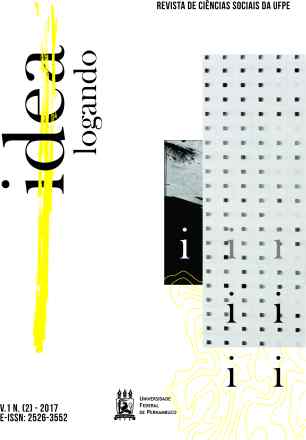DIVERSIDADE, DESENVOLVIMENTO E PROCESSOS DE MERCANTILIZAÇÃO DA “CULTURA”: O PAPEL NORMATIVO DA UNESCO NA DIFUSÃO DOS MODELOS DE INDÚSTRIAS CRIATIVAS
Revista Idealogando
DIVERSIDADE, DESENVOLVIMENTO E PROCESSOS DE MERCANTILIZAÇÃO DA “CULTURA”: O PAPEL NORMATIVO DA UNESCO NA DIFUSÃO DOS MODELOS DE INDÚSTRIAS CRIATIVAS
Autor Correspondente: Artur André Lins, | [email protected]
Palavras-chave: Desenvolvimento. Diversidade. Cultura. Indústria Criativa. UNESCO.
Resumos Cadastrados
Resumo Português:
Este artigo propõe discutir o processo de alinhamento entre o conceito de “cultura” e a matriz discursiva do desenvolvimento dentro do contexto histórico de transformação dos modos de regulação do capitalismo global na segunda metade do século XX. Primeiramente, pretende-se apontar para o vínculo entre cultura e economia no interior do debate sobre as indústrias criativas. Posteriormente, a partir da análise de uma série de documentos da UNESCO, busca-se rastrear as estratégias discursivas para legitimar o princípio da diversidade cultural no âmbito da cooperação internacional para o desenvolvimento. Por fim, recorre-se a um documento foco – Nairobi Plan of Action –, amparado por uma intertextualidade documental relacionada, a partir do qual será possível compreender o protocolo de disseminação dos modelos prescritivos das indústrias criativas mundo afora.
Resumo Inglês:
This article proposes to discuss the process of alignment between the concept of "culture" and the discursive matrix of development within the historical context of transformation of the modes of regulation of global capitalism in the second half of the twentieth century. Firstly, it is intended to point to the link between culture and economy within the debate on the creative industries. Subsequently, based on the analysis of a series of UNESCO documents, it is sought to trace the discursive strategies to legitimize the principle of cultural diversity in the context of international cooperation for development. Finally, a focus document - Nairobi Plan of Action - is used, supported by a related documentary intertextuality, from which it will be possible to understand the protocol of dissemination of the prescriptive models of the creative industries worldwide.

